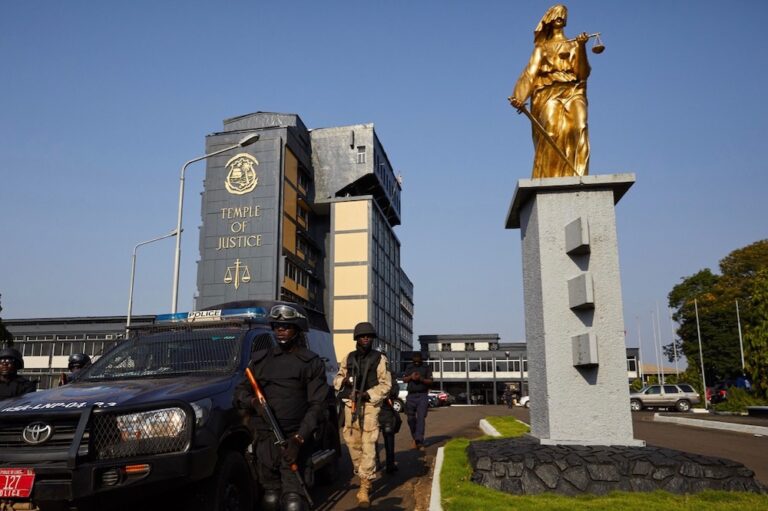(CEMESP/IFEX) – Monrovia, May 3, 2009: On the observance of World Press Freedom Day, May 3, the Center for Media Studies and Peace Building (CEMESP) has recalled that challenges to free expression still remain firm across Liberia, with many persons, including government and civil actors, still resolute in their plans to restrain the media from […]
(CEMESP/IFEX) – Monrovia, May 3, 2009: On the observance of World Press Freedom Day, May 3, the Center for Media Studies and Peace Building (CEMESP) has recalled that challenges to free expression still remain firm across Liberia, with many persons, including government and civil actors, still resolute in their plans to restrain the media from reporting as it sees fit.
While the constitution of Liberia guarantees freedom of expression, and the current government professes to strongly believe in and adhere to these measures, circumstances in the day to day world of journalists and heavily opinionated and critical persons speak otherwise.
Within the last month in Liberia, this has been exemplified by the illegal closure of the New Broom Newspaper, upon the orders of the Ministry of Information, on account of taxation. To the best of our recollections, tax matters are within the purview of the Ministry of Finance, and even at that, the constitution still requires that privileges granted anyone within this republic can only be withdrawn upon the basis of a legal action. As simple as that statement is, it is still not adhered to.
Regrettably, CEMESP notes this as the second of such actions within a space of two years.
Actions against the press were also seen within the last few weeks with the arrest and detention of a reporter, even as he tried to report and photograph allegations of harassment of peaceful residents at the Bureau of Immigration and Naturalization.
On this anniversary of World Press Freedom Day, CEMESP further regrets the continuous siege of the community radio station, Smile FM, in Zwedru, Grand Gedeh by authority of the County Superintendent.
“We are concerned about delays by the Legislature to pass the Freedom of Information Law and two other media laws as proposed by media and civil society groups. We believe that the Legislature should see these laws as integral to the democratization of Liberia, and should provide necessary support to ensure their easy passage.”
We believe further that the passage of these laws would provide even greater opportunities for lawmakers – and their constituents – to access information that may be necessary to assist them in the governance and legislative process.
Of particular concern however in this regard have been claims about the suspended Chairman of the Liberia Telecommunications Authority using public funds to bribe lawmakers against the passage of the broadcast regulatory act. We believe this is actually against the spirit and intent of the legislative and lobbying process.
Notwithstanding the aforesaid, we like to welcome the actions taken by the House of Representatives and the President to reprimand Mr. Bropleh. In addition to the reprimand, we like to call upon these most progressive public servants to ensure the early, easy and responsible passage of these legislations to remove the dark cloud of suspicion that continues to linger about their integrity as a consequence of Mr. Bropleh’s unguided comments.
These signs are ominous, and a stark reminder of days in the 1990s and earlier, when disagreement with or criticism of public officials or figures was already a crime, whose punishment was under action.
As we all recognize that Freedom of the Press can be better achieved with improved working conditions for the journalists who work the craft, CEMESP expresses its solidarity for the discussions that have begun on the institution of a collective bargaining agreement for Liberian journalists.
We believe this would ensure that today turns out as a new and different day in Liberia. The time to restrain speech in Liberia is long past, as people are a lot more enlightened about their rights, and would easily proffer their opinion on issues, as they affect them from time to time.
Malcolm W. Joseph
Executive Director


